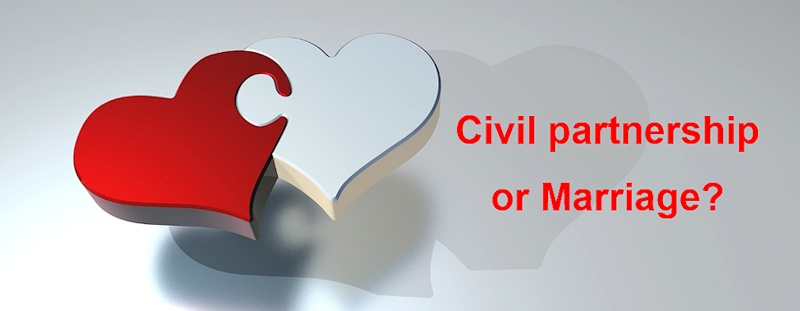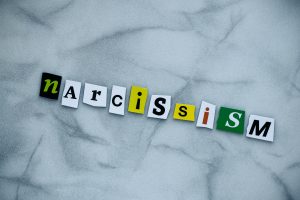In the recent high profile court case a judge unanimously ruled in favour of Rebecca Steinfeld and Charles Keidan who wanted legal recognition of their relationship without the trappings of marriage. While this judgment still has to be enshrined in law (i.e. it’s still not a legal entity for heterosexual couples) it’s a good time to explore the differences between these two legal relationships.
Civil partnerships were introduced in the UK for same-sex couples as a legal equivalent to marriage, but without some of the same legal rights. Now that marriage for same-sex couples has become legal, the Civil Partnership would be expected to fade out – except that some people clearly feel it’s a valid entity.
Basically, there are no major differences between civil partnerships and marriage but there are some.
- Civil partners cannot call themselves ‘married’ for legal purposes. So on forms where status offers Married/Separated/Divorced/Single as options, effectively, they would have to designate themselves as ‘single’. Until the law allows heterosexual civil partnerships, ticking the ‘civil partnership’ option forces the individual to admit their sexual preferences.
- Civil partnership certificates show the names of both parents of the parties. Marriage certificates include only the names of their fathers.
- In a marriage, if one party is unfaithful this is grounds for divorce. But adultery isn’t recognised as a reason for dissolution of a civil partnership. Unlike marriages, consummation is not a legal requirement for civil partnerships.
- Civil partners do not have the same pension rights as married couples. If one civil partner dies, the pension share that the surviving partner receives is often lower and lasts for less time than with married couples. But for married couples, a surviving partner is entitled to a pension based on the number of years their spouse paid into the pension fund.
Travelling abroad
Although not all straight people get married, marriage with a loved partner is an option that is legally available to them. The language of marriage carries a social weight that civil partnership does not. Travel restrictions apply to civil partners, but not married couples.
Countries like Sweden, Argentina and Portugal, where same-sex marriage is legal, don’t see civil partnerships as marriage. This means UK civil partners living abroad do not enjoy the same rights as same-sex married couples in the 11 countries where equal marriage is legal.
In addition, the marriages of foreign gay couples who travel to the UK are not legally viewed as marriages.
In some countries where co-habiting is against the law without marriage, civil partnerships may not be sufficient to be considered within the law. While Muslim countries mostly consider homosexuality illegal, it is yet to be established as to whether they would recognise a heterosexual civil partnership as an acceptable entity equivalent to marriage.
Civil Marriage
A civil marriage means you end up with the same rights as a religious marriage in the eyes of the law, but the ceremony is different.
The civil marriage ceremony does not have any religious content, including any hymns or readings. Often the couple write their own vows, but the recording of the marriage in the register, as with the religious marriage record, still only records the fathers or the bride and groom, not their mothers.
At the end of the day the process of dissolving a marriage or a civil partnership is virtually the same – and needs handling sensitively. If you would like advice please call us on 01245 221699.




